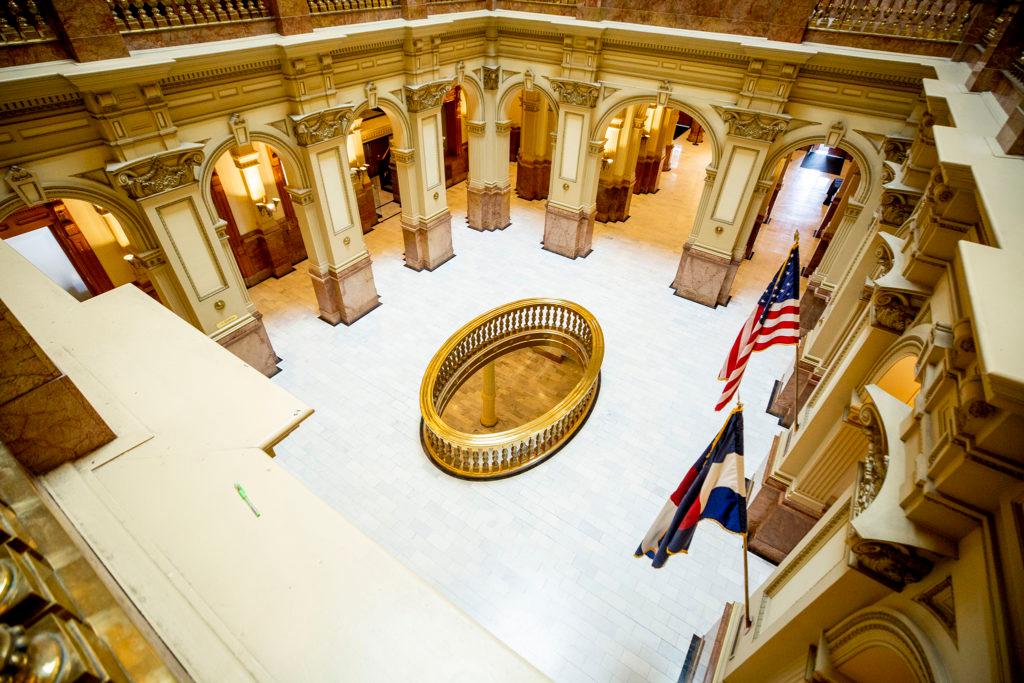
The Colorado legislature has officially suspended its work for at least two weeks, amid the growing coronavirus pandemic. In a historic first for the state, the House and Senate approved the temporary halt to their work on a voice vote.
“We had to make some very quick decisions,” said Democratic Speaker of the House KC Becker. “There's been some questions about why two weeks? I think two weeks provides enough time for some social distancing without pushing us too far out in the future to know what may come up that we need to address, or where we are in the trajectory of this pandemic.”
Legislative leaders said if necessary they could return to the state capitol and vote to extend the break.
- This week on CPR's political podcast Purplish: Legislation In The Time Of Coronavirus
“I think this is appropriate at this time for us to take that pause to allow the community and public to deal with the crisis,” said Republican House Minority Leader Patrick Neville. He noted that some lawmakers would still be meeting, even while on a break, “things like the Joint Budget Committee.”
That’s important because the biggest item still undone is the annual budget bill. Colorado's next economic forecast has been pushed up slightly, to Monday afternoon instead of Tuesday midday. The lawmakers tasked with writing the budget will use those numbers to finalize the spending package, which is mostly already written. Their meetings during the two-week legislative break will be streamed online, but members of the public or press likely won't be allowed in the room. After several weeks of chaos in the markets, and with the long-term economic effects of the coronavirus looming, Committee members are bracing for cuts.
“I think anybody who's paid any attention to what's been happening economically across the globe is on pins and needles to see what our state forecast is going to look like,” Democratic Rep. Daneya Esgar, the chair of the JBC. “I think we're going to have to really take a hard look and figure out what it is that we need to do to make sure that the state is not only functioning, but thriving for all Coloradans throughout this entire pandemic.”
That means when lawmakers return to the capitol, the session will likely look very different. Even members of the Democratic majority say some of their priorities may have to fall by the wayside.
“There's no question that coronavirus has changed the focus of the session and when we come back after this break, the focus will be, it needs to be on how do we get Colorado back on its feet?” said Democratic Sen. Jeff Bridges.
State leaders have also submitted a question to the Colorado Supreme Court to settle a debate over how long lawmakers can remain in session once they return. The state constitution requires the legislature to conclude its work after 120 consecutive days, which this year falls on May 6.
There’s some disagreement between the political parties on whether that end point will still apply. Republicans generally think lawmakers still need to adjourn on time, no matter how much of a break they take. Democrats argue the session end date could be extended because Colorado is in a declared state of emergency.
The Supreme Court’s answer could determine how much time the legislature has to finish its work. If that ends up being too little for what Democrats want to get done, Gov. Jared Polis could call lawmakers back for a special legislative session, which would be more narrowly focused, and requires all pending legislation to start over from scratch. But convening a special session, especially if the topics don’t have wide bipartisan support, could carry political risks for the governor and the majority party.
A number of other state legislatures are also suspending or changing their work schedules because of the coronavirus. Illinois and Georgia have stopped meeting. Connecticut has banned all public meetings. The Washington legislature adjourned on May 12, after a 60 day session.









